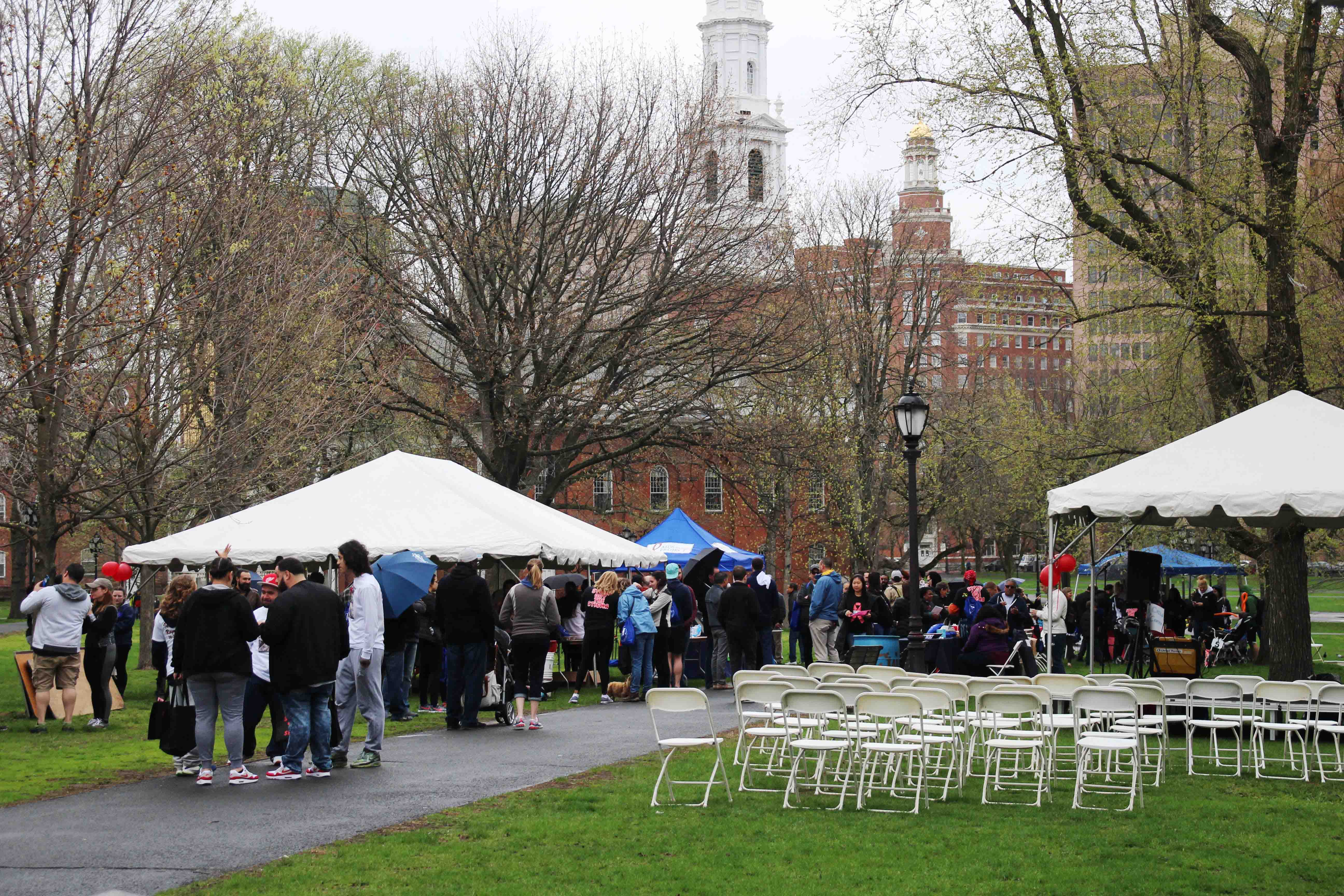
The Elm City hosted its 13th annual AIDS walk on Sunday, attracting a crowd of over 150 people to the New Haven Green.
The event began with a variety of performances from Yale-affiliated dance and a cappella groups, as well as a spoken-word presentation. In spite of the rain, attendees then began a 5-kilometer march starting and ending at the New Haven Green. While some walked for their loved ones and others for friends, all aimed to raise money to support families in New Haven affected by HIV/AIDS. Beyond raising money, the event also aimed to raise awareness about the potential causes, effects and resources available for patients with the virus or illness.
“We just want to be able to help provide support services to individuals and families struggling in the city,” said Aastha Kc ’20, Yale outreach director for the walk. “We want to promote prevention through advocacy and really just unite against the stigma of infection.”
All proceeds will go to member agencies of the New Haven Mayor’s Task Force on AIDS, Kc said. This year’s fundraising goal was $10,000 — which the city reached just a few nights before the event. As of Sunday night, the walk had raised just over $12,000, which was nearly double that of what the event raised last year.
Recipient organizations include groups like AIDS Project New Haven, which will use the money to help fund services that promote HIV awareness and prevention through education in the greater New Haven area.
The Cornell Scott Hill Health Center, another partner in the mayor’s task force that will receive a share of the contributions, has a special division dedicated to HIV/AIDS patients. In addition to counseling and testing services, the nonprofit center offers clinical management of the disease.
In a speech to the crowd on Sunday, Douglas Bruce, a practitioner at the center, emphasized that although the world has come far in treating HIV/AIDS, there is still much work to be done.
“It’s 2017,” Bruce said. “Do you know that we have all the medicine to end the AIDS epidemic? Do you know what’s standing in our way? I’m not sure enough people want to end AIDS. … The problem isn’t the people with the virus not taking the medicine. The problem is the government not acting and not giving people the treatment they need.”
Bruce expressed concern about President Donald Trump’s budget cuts to the State Department, which funds the President’s Emergency Plan For AIDS Relief — the largest international AIDS relief strategy proposed by any nation. Bruce added that although his generation will keep fighting and advocating for AIDS relief and awareness, the younger generation must take action as well.
Aryssa Damron ’18, assistant director of AIDS Walk New Haven and an adviser on the Mayor’s Task Force on AIDS, expressed similar views. While the event has garnered a significant following since its inauguration in 2004, Damron said that in the three years she has worked with the organization, she has noticed a disconnect between the Yale and New Haven communities.
“It’s really hard to fight Yale apathy,” she said. “People don’t think it’s as big of an issue for Yale students, so we really struggle to get Yale students involved.”
This year, Damron and the Yale outreach directors for the event helped introduce walking teams for individual residential colleges. In addition, Kc recruited several Yale-affiliated groups to perform at the walk, including the dance group Kalaa, the a cappella group The New Blue and a performer from the spoken-word poetry group WORD.
Still, both organizers expressed hopes that in the coming years, more Yale students will participate in the walk.
In 2004, there were over 6,000 people living with AIDS in Connecticut.







